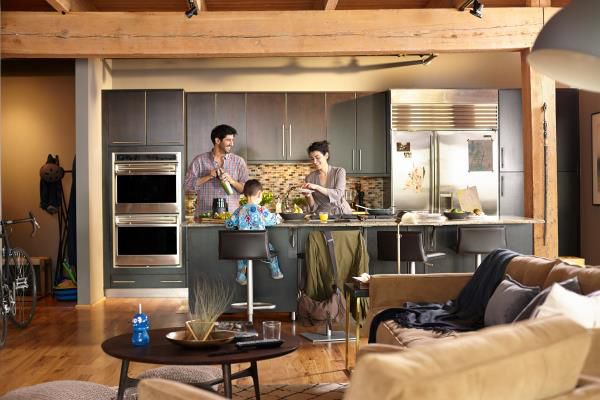(StatePoint) Between work and school-year commitments, it can be difficult to carve out time to sit down at the table and enjoy a home-cooked dinner as a family, but it is well worth the effort. In addition to offering an opportunity to bond, eating together and engaging in conversation can have a deeper influence on children. Follow these tips to bring the family together and create a lasting tradition.
Mark the Calendar
Create a monthly calendar that incorporates a few meals a week in which everyone can be present when there are no sports, activities or after-work functions. Research shows that children benefit when the family eats together at least three times a week. In fact, reported improvements range from healthy eating habits to improved literacy and verbal skills, according to the Family Dinner Project. If three dinners is a stretch for your busy family, consider morning brunches or evening desserts.
Create a Family-Friendly Menu
Integrate family favorites to create excitement around supper, such as a weekly pizza night. Make homemade crust as a team and craft personal pies incorporating fresh toppings, such as bell peppers, onions, spinach, zucchini and tomatoes. To further maximize time, create dishes on a weekend to freeze and thaw when ready. Try a simple tortilla soup that can be prepared in minutes using a high-performance blender, such as a Vitamix.
Have Hands-on Meal Prep
Incorporate the kids into every step of meal prep in a safe and easy way. Drop vegetables into the blender to chop for pizza or salad toppings, tortilla soup or even a Taco Tuesday fiesta. Then, allow kids to add these veggies to the recipe. Engage your children further by having them set timers and watch for meals to cook. As a final step, allow them to add spices and fresh herbs before setting dinner on the table. Fast and tasty family recipe ideas that you can create together can be found at Vitamix.com.
Turn Off Electronics
Make the table an electronic-free zone. Turn off cell phones and television shows to make room for face-to-face communication. Removing cell phones from the equation can positively influence the quality of conversation, while helping kids to gain a better understanding of social cues, facial expressions and changes in tone that lead to more fruitful interactions, according to a study by researchers at Virginia Tech. Unplugged conversations can help create memorable family moments.
Think of the kitchen and the dinner table as family gathering places to help instill good habits — from great communication skills to healthier eating. If you look at meals as more than just food, your family will reap the benefits.
*****

